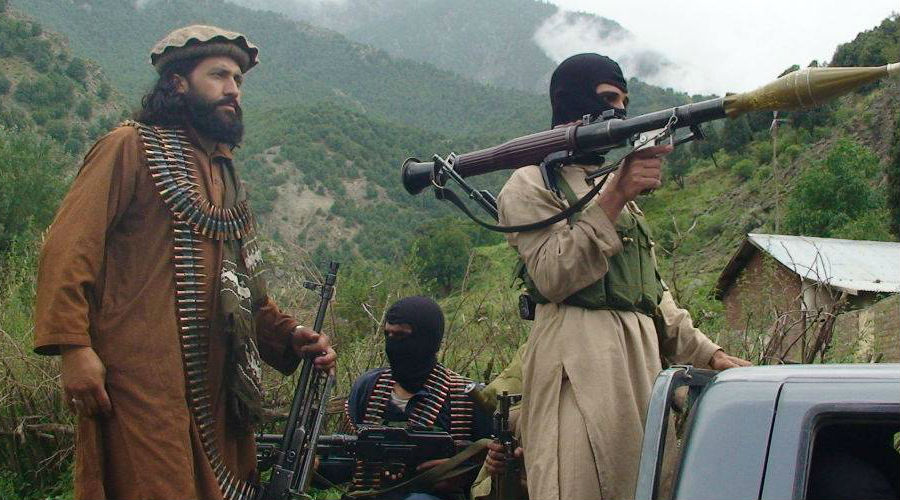A number of Central Asian countries recently took further security and legislative measures to address the rise in terrorist activity and most importantly threats posed by ISIS. The development followed an increase in the number of terrorist elements who hail from these countries and who joined such organizations that seek to send them back to their home countries to back their expansion. The measures impose direct repercussions not only on the security and stability of these countries, but also on the interests of neighboring countries and regions.
Recent Western reports noted that terrorists from Central Asia are mostly used as “time bombs” to which terrorist organizations resort to respond to military operations which surged in the past two years.
Parallel Measures
Tajikistan was at the forefront of Central Asian countries that tightened security and legislative measures to curb the threat of ISIS. On January 28, 2018, a Tajik court sentenced a couple to 16 and 18 years in prison in absentia for participating in ISIS’ terrorist and military operations in Syria. One day earlier, three people were sentenced for seeking to join the organization.
On May 6, 2016, Tajik authorities accused ISIS of recruiting two people to assassinate President Emomali Rahmon and sentenced them to 8 and 10.5 years in prison.
Moreover, Tajikistan worked on promoting security cooperation with Russia as part of such measures, and in November handed over a former Russian officer specialized in IT and encryption. The officer was accused of taking part in ISIS’ military confrontations in Syria and Iraq
In addition, there were warnings that violence can escalate in Uzbekistan after a number of citizens who joined ISIS carried out terrorist attacks outside the country. One of them was Sayfullo Saipov, who carried out a deadly attack in Lower Manhattan, New York City, on October 31. Another Uzbeck, Abdulkadir Masharipov carried out a massacre at a nightclub in Istanbul, Turkey on January 1, 2017.
Kyrgyzstan too called for expanding coordination between regional states to address the issue of ISIS fighters returning from conflict zones. The call came after several assessments revealed that a number of nationals, including women, headed to Syria to join terrorist organizations whose activity surged in the past period.
The call coincided with neighboring Azerbaijan’s announcement, on January 30, 2018, that that 300 citizens were killed in Syria and Iraq and that 92 others were arrested upon their return to the country after they took part in attacks carried out by terrorist organizations in the two countries.
Various Repercussions
These developments appear to have promoted views that Central Asia and the Caucasus are likely to become the scene of expanding influence of terrorist organizations and ISIS in particular following military strikes against it in Syria and Iraq in the past period, a development that can impose several repercussions. The most important of which are as follows:
1- Establishing New ISIS Areas of Influence. These views indicate that ISIS elements in this region possess organizational and combat capabilities that enhance their ability to establish new hotbeds in the region. This can increase the possibility that ISIS would expand into other states and regions, which explains why some international powers showed interest in the potential trajectory of the war on terrorist organizations in the Middle East. That is, this war will force ISIS to look for other options that can include Central Asia and the Caucasus.
2- Widening Terrorist Operations. The return of terrorists, who took part in military confrontations in Syria and Iraq, to their home countries, has contributed towards broadening the scope of terrorist operations targeting their countries.
Although many studies assert that it is hard to identify the number of terrorist hailing from Central Asia who joined terrorist organizations, Russian President Vladimir Putin revealed that it is anywhere between 5000 and 7000 elements. Previously in December 2017, Putin warned that former Soviet countries were being threatened by militants using Central Asia and the Middle East as a springboard for expansion.
3- Increasing Warnings against targeting Russia. The UK-based analysis firm IHS, on January 18, 2018, noted that the World Cup football tournament to be held in Russia in June and July will be an attractive target for ISIS, given Russia's role in the territorial defeat of the militant group and Russia’s increasing military involvement in Syria which began three years ago. The warnings were based on signals revealing ISIS’ plans to carry out attacks. An account on Telegram run by an ISIS loyalist published a map of Russian cities where the World Cup will be held and urged its elements to prepare for targeting them.
4- Building a Network of Alliances with other Organizations. The aim is to consolidate ISIS’ ability to enhance its influence in the region through promoted coordination between its branches such as ISIS in Khorasan (ISIS-K), ISIS-Caucasus Province, operating in both Chechnya and Dagestan, as well as groups loyal to ISIS, such as the Islamic Movement of Uzbekistan.
The organization appears to be trying to take advantage of the outcome of the war waged against it in Syria and Iraq, particularly to avoid escalation of disagreement with other terrorist groups that could jeopardize the chances of reaching understandings with these groups, and reduce its ability to whether the continued pressure of military strikes.
Hence, it can be said that countering threats imposed by ISIS’ targeting Central Asia will become a focal center of interactions among regional states, which are now aware of the potential repercussions of ISIS’ expansion in their territory using returning fighters.


